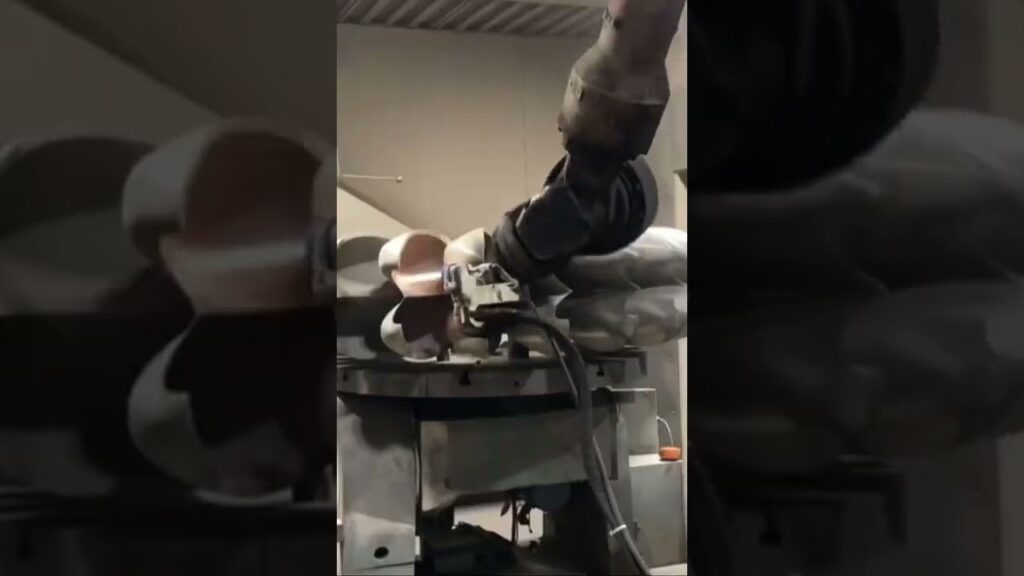Industrial Robots in Manufacturing: Revolutionizing the Production Line
In today’s ever-evolving world, the integration of advanced technologies has become an integral part of various industries. From healthcare to logistics, automation has taken center stage in streamlining operations and increasing efficiency. One sector that has seen a significant transformation is manufacturing, where the utilization of industrial robots has revolutionized the production line, leading to heightened productivity and precision.
Industrial robots, also known as robotic arms, are mechanical devices programmed to perform various tasks autonomously. These machines are equipped with sensors, processors, and actuators, allowing them to interact with their environment and mimic human-like movements. With their exceptional speed, accuracy, and ability to work continuously, industrial robots have become the backbone of modern manufacturing.
One of the key areas where industrial robots have made a profound impact is machining. Precision is crucial in manufacturing, especially in sectors like automotive, aerospace, and electronics where intricate components are produced. By utilizing industrial robots, manufacturers have been able to achieve unparalleled precision and consistency in their machining processes, resulting in higher quality products.
In machining applications, industrial robots excel in tasks such as milling, drilling, and grinding. Equipped with advanced software and algorithms, these robots can execute complex movements with minimal human intervention. This not only reduces the risk of errors but also enhances the overall efficiency of the production line. Moreover, industrial robots can work tirelessly without fatigue, leading to increased productivity and faster turnaround times.
Another aspect where industrial robots have proven their worth is surface solutions. In industries like metal fabrication, coating plays a vital role in protecting the manufactured components from corrosion and wear. Traditionally, surface coating was a labor-intensive process that required immense precision. However, with the advent of industrial robots, this process has become much simpler and more accurate.
Robotic arms equipped with specialized coating tools can precisely apply coatings on various surfaces, ensuring uniform coverage and minimal wastage. The ability to program these robots to follow specific patterns and parameters makes them ideal for achieving consistent coating quality. Additionally, the use of industrial robots eliminates the risk of human error and improves worker safety by minimizing exposure to hazardous materials.
While industrial robots continue to reshape the manufacturing landscape, it is essential to address any concerns regarding their integration. Some skeptics argue that the widespread adoption of industrial robots may lead to job losses. However, experts suggest that these concerns are largely unfounded. Instead of replacing human workers, industrial robots are more likely to work alongside them, creating a hybrid workforce that combines human creativity and critical thinking with robotic precision and speed.
Moreover, the implementation of industrial robots can actually enhance job satisfaction for workers. By taking over repetitive and monotonous tasks, these robots free up human workers to focus on more intellectually stimulating and value-added activities. This transition allows employees to develop new skills and take on higher-level responsibilities, ultimately leading to career growth and job satisfaction.
Looking into the future, the potential applications of industrial robots in manufacturing are vast. From collaborative robots that work hand-in-hand with human workers to robotic systems that can adapt and learn from their surroundings, the possibilities seem endless. With advancements in artificial intelligence, machine learning, and sensor technologies, industrial robots will only continue to evolve, redefining the manufacturing industry’s capabilities.
In conclusion, industrial robots have become a game-changer in the manufacturing sector. Their precision, speed, and tireless work ethic have revolutionized machining and surface solutions. While concerns about job losses persist, the integration of industrial robots into the production line can actually enhance job satisfaction and lead to career growth for human workers. As we look towards the future, the potential applications of industrial robots are limitless, promising even more advancements in the manufacturing industry.
Industrial Robot
“Unveiling Industrial Robot Mastery: Machining, Surface Solutions, and Coating in Manufacturing”


